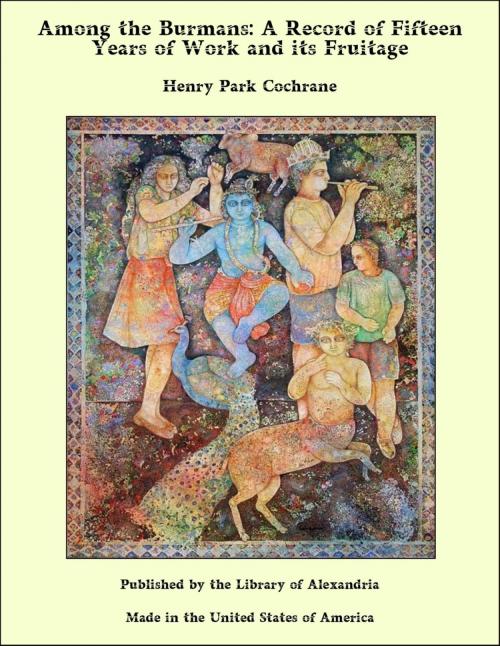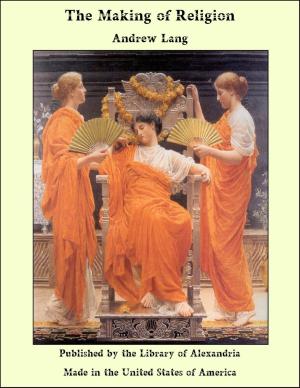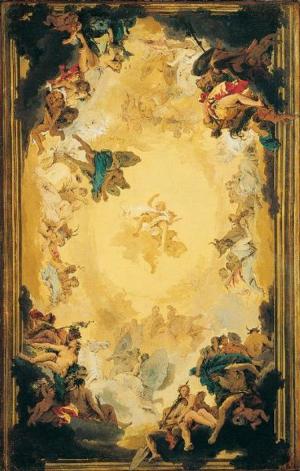Among the Burmans: A Record of Fifteen Years of Work and its Fruitage
Nonfiction, Religion & Spirituality, New Age, History, Fiction & Literature| Author: | Henry Park Cochrane | ISBN: | 9781465620163 |
| Publisher: | Library of Alexandria | Publication: | March 8, 2015 |
| Imprint: | Language: | English |
| Author: | Henry Park Cochrane |
| ISBN: | 9781465620163 |
| Publisher: | Library of Alexandria |
| Publication: | March 8, 2015 |
| Imprint: | |
| Language: | English |
The Chanda was slowly making her way with the tide up the Rangoon River. Two young missionaries, myself and wife, were leaning on the rail, deeply interested in the scene before us. The rising sun, sending its rays over the land, seemed to us a pledge of the Master's presence in the work to which we had consecrated our lives. On every hand were strange sights and sounds, strange scenery, strange craft, strange people; everything far and near so unlike the old life that we had left behind. But it was something more than new sights and sounds that stirred in us the deep emotion expressed in moistened eye and trembling lip. Thoughts were going back to the time when we heard the call, "Whom shall I send, and who will go for us?" And now that we were about to enter upon the realization of that to which we had so long looked forward, hearts too full for utterance, were stirred with gratitude and praise. But not long were we permitted to indulge in either retrospect or prospect. As the steamer drew near the dock all was turmoil and excitement,—officers shouting their orders; sailors dragging the great ropes into place; passengers getting their luggage ready for quick removal; friends on ship and shore eagerly seeking to recognize a familiar face; waving of handkerchiefs; sudden exclamations when an acquaintance or loved one was recognized. At last the gangplank is in place, and on they come,—officials, coolies, business men, hotel-runners, representatives of many races, and conditions, energy for once superseding rank; missionaries well to the front to extend a welcome to the newcomers. What a power there is in the hearty hand-shake and cordial greeting! To the newcomer, who has everything to learn and much to unlearn,—this warm reception by the veterans is a link to reconnect him with the world from which he seemed to have been separated during the long voyage; a bridge to span the gulf of his own inexperience; a magic-rite of adoption into the great missionary family; a pledge of fellowship and cooperation for all the years to come. It was Sunday morning,—though few in that motley crowd either knew or cared. Mohammedan, Hindu, Parsee, Buddhist, and "Christian" jostled one another, each intent on his own affairs, and all combining to make this the farthest possible extreme from a "day of holy rest." Little wonder that this first Oriental Sunday was a distinct shock to the new missionaries. They had yet to learn that on many such Sundays they would long for the "Sabbath- and Sanctuary-privileges" of the home-land. But soon it became evident that the missionaries at least, were about the "Father's business," each hurrying away to be in time for the morning service in his own department of mission-work among many races. To the eye of one who has just landed in Rangoon each individual in the throng of natives on the street seems to have arrayed himself as fantastically as possible, or to have gone to the other extreme and failed to array himself at all. But at these Christian services one sees the natives classified according to race, and learns to distinguish certain racial characteristics,—of feature, costume, and custom. A congregation of Burmese is a beautiful sight, their showy skirts, turbans, and scarfs presenting the appearance of a flower garden in full bloom, but especially beautiful as a company of precious souls turned from their idols to the "True and living God." Among our first experiences was a warm appreciation of the kind attempts on the part of the missionaries to initiate us, by means of good advice, into life in the tropics. "Now do be careful about exposing yourself to this tropical sun. Remember, you are not in America now." "That solar tope of yours is not thick enough for one who is not used to this climate." "Flannel next to the skin is absolutely necessary, as a safeguard against malaria, dysentery, and other complaints so common here." "Now dear brother and sister, you must look out and not let your zeal run away with your judgment. Yankee hustle won't do in Burma."
The Chanda was slowly making her way with the tide up the Rangoon River. Two young missionaries, myself and wife, were leaning on the rail, deeply interested in the scene before us. The rising sun, sending its rays over the land, seemed to us a pledge of the Master's presence in the work to which we had consecrated our lives. On every hand were strange sights and sounds, strange scenery, strange craft, strange people; everything far and near so unlike the old life that we had left behind. But it was something more than new sights and sounds that stirred in us the deep emotion expressed in moistened eye and trembling lip. Thoughts were going back to the time when we heard the call, "Whom shall I send, and who will go for us?" And now that we were about to enter upon the realization of that to which we had so long looked forward, hearts too full for utterance, were stirred with gratitude and praise. But not long were we permitted to indulge in either retrospect or prospect. As the steamer drew near the dock all was turmoil and excitement,—officers shouting their orders; sailors dragging the great ropes into place; passengers getting their luggage ready for quick removal; friends on ship and shore eagerly seeking to recognize a familiar face; waving of handkerchiefs; sudden exclamations when an acquaintance or loved one was recognized. At last the gangplank is in place, and on they come,—officials, coolies, business men, hotel-runners, representatives of many races, and conditions, energy for once superseding rank; missionaries well to the front to extend a welcome to the newcomers. What a power there is in the hearty hand-shake and cordial greeting! To the newcomer, who has everything to learn and much to unlearn,—this warm reception by the veterans is a link to reconnect him with the world from which he seemed to have been separated during the long voyage; a bridge to span the gulf of his own inexperience; a magic-rite of adoption into the great missionary family; a pledge of fellowship and cooperation for all the years to come. It was Sunday morning,—though few in that motley crowd either knew or cared. Mohammedan, Hindu, Parsee, Buddhist, and "Christian" jostled one another, each intent on his own affairs, and all combining to make this the farthest possible extreme from a "day of holy rest." Little wonder that this first Oriental Sunday was a distinct shock to the new missionaries. They had yet to learn that on many such Sundays they would long for the "Sabbath- and Sanctuary-privileges" of the home-land. But soon it became evident that the missionaries at least, were about the "Father's business," each hurrying away to be in time for the morning service in his own department of mission-work among many races. To the eye of one who has just landed in Rangoon each individual in the throng of natives on the street seems to have arrayed himself as fantastically as possible, or to have gone to the other extreme and failed to array himself at all. But at these Christian services one sees the natives classified according to race, and learns to distinguish certain racial characteristics,—of feature, costume, and custom. A congregation of Burmese is a beautiful sight, their showy skirts, turbans, and scarfs presenting the appearance of a flower garden in full bloom, but especially beautiful as a company of precious souls turned from their idols to the "True and living God." Among our first experiences was a warm appreciation of the kind attempts on the part of the missionaries to initiate us, by means of good advice, into life in the tropics. "Now do be careful about exposing yourself to this tropical sun. Remember, you are not in America now." "That solar tope of yours is not thick enough for one who is not used to this climate." "Flannel next to the skin is absolutely necessary, as a safeguard against malaria, dysentery, and other complaints so common here." "Now dear brother and sister, you must look out and not let your zeal run away with your judgment. Yankee hustle won't do in Burma."















